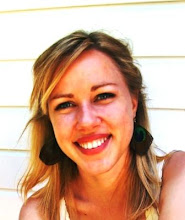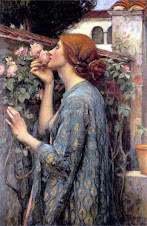Dear friends,
I feel like I spend an inordinate amount of time apologizing on this blog, but so be it - I owe you another one for a blog, below, which is sure not to live up to its hype. I wish that I had some elaborate and amusing excuse for the hiatus, but the prosaic fact of the matter is that I am in a writers' workshop this semester, so I am doing more writing than ever, but none of it is for this site. I beg your indulgence. Without further delay: PUBLIC ALLEY 439
November 21, 2007
I was on the silver line bus going away from the airport in Boston. (I think it might technically be called the General Edward Lawrence Logan International Airport - I'll stick to "airport"). Bethany and Brian shared a row somewhere over my left shoulder, and I was sitting next to Eddie, a friend of Brian's that I had met five minutes prior.
Crowded public transportation is always a bit awkward. "Hi! Don't mind me, I'm just going to stab you in the spinal column with my elbow and suffocate this other chap with the scent of my papaya-cocoa butter lotion, but just go on pretending I'm not here." But generally we avert our eyes, close our mouths, and get through it. In fact, it's a little bit odd to strike up a conversation with a stranger on the bus. The same unwritten articles say that you can talk to a stranger on a plane - How odd and intricate our social regimes!
So there we sat, Eddie at the window and I on the aisle, knowing nothing of each other but our Christian names, with half an hour to spend talking or not talking. I decided the most pitiable small talk would be better than not talking. I tried a few questions, and it turned out, to my great relief, that Eddie was an eager talker if properly encouraged.
Eddie wanted to be a city planner, he said. So we talked about cities - the ones we had in common, the ones we loved, the ones we loathed. And before the topic was quite exhausted, it was time to get off the bus.
The cities I have loved -San Francisco, Washington, Florence - have similar profiles:Their streets are cantankerously difficult to navigate; water moseys through them, adding the inimitable romance of bridges; and they all have something else Italian city planners call a misura d'uomo. There is no facile English translation, but it means literally "man-sized," and is most like "habitable," but far nicer, like tailor-made clothing. It means that a city is homey, built on a human scale, not soaring to the astral heights and intrepid sprawl of a New York City or a Los Angeles. Such megatropolises are inevitable, I suppose, if only to make the other cities cozier by comparison, but give me misura d'uomo any day. Exploring Boston without Bethany and Brian, I decided to add it to my personal list.
We traded our luggage for some claim tickets in a dank, cold little office. The attendants, two teenagers, were bored nearly senseless, but they took evident joy in their boredom. Their wisecracks were endless, as were their barbed imitations of particularly memorable customers.
Setting out, we sometimes followed the Freedom Trail, a red line that jerked a circuitous route through the old part of city. Sometimes we went away from it. Everywhere, I found a brusque, bundled up city, apparently fond of its billiards and beer. Pedestrians clothes' were drab as flocked sparrows, but the trees were bright red, orange, and yellow, as if stealing their splendor from the collective wardrobe of the populace.
Every few blocks, we paused for Bethany to puzzle over a map. Bethany spent most of her childhood within an hour of the very street corner we were scratching our heads, and I hadn't quite expected us to be lost, but (How shall I put this with all the love I have for Bethany?) I was not surprised. I would stop short of calling Bethany directionally challenged, but an itinerary of which she is in charge will always be a venture for the bold. If you leave A with Bethany, you are sure to arrive at B, but you may, en route, stop at every other letter, even if the alphabet were twice its current length. Her conversation had the same charming quality, which I have marveled at countless times. She will start out explain something, follow a hundred rabbit trails, and then arrive back exactly where she wants long after I have forgotten what we were talking about. At each consultation of the map, Brian stood patiently aside.
I asked him later why he said nothing. (It bears mentioning that Brian is by profession a geographer, an "expert in the field of spatial analysis," and words fail me to capture the irony of Bethany sorting out east from west while he leaned against a brick wall.)
He shrugged and smiled, "If I were really cold or hungry, I'd step in, but otherwise I'm not too worried about it."
By the time any of use were really cold or hungry, we had found Fenuiel Hall. We ate up on the second story after climbing a winding staircase. The rotunda, directly overhead, was an oval, not a circle, and I got dizzy from looking up at it. The second level was open to the elements. A sparrow flew in and out, cleaning crumbs off the lunch table. Afterwards, we went out the back to an old constitutional hall, where a tour guide was remarking tonelessly on the Boston Tea Party. Apparently the little colonial devils had managed to hoist $1.8 million dollars worth of cargo into Boston Harbor. I can't say I blame England for being put out. Outside, an actor playing Benjamin Franklin was posing with a couple of kids. A pair of fake gold buckles were affixed to his orthopedic sneakers.
We set off again to explore Boston and its treasures. Everywhere were old building dressed up to look new, and new buildings dressed up to look old. The narrow streets meandered, ended in acute angles, perpendicular nowhere.
We went to an old cemetery called The Granary. I could have spent hours reading the stones: "Here lyes ye body of M. Samuel Dixon. July -" and here the most stoic of eulogies is interrupted by the ursurping mud.
The Irish-ness of Boston is hard to escape. We came to a memorial to the victims of the 19th century Irish potato famine. In half of the memorial, there is an emaciated family dressed in tatters. In other half, the same family is healthy, rejuvenated, and with a slight nostalgic backward glance, ready to tackle the American dream. In the height of the immigration, up to 37,000 Irish per year crossed the "bowl of tears" to settle in Boston, much to the chagrin of most Bostonians. On that day, if I did see some color sprouting from the coats of brown and black and gray, it was a slash of defiant green.
While we were walking, we passed a sign for Public Alley 439. I smiled and tried to comprehend the fastidious internal logic of a city that numbers its public alleys. Brian thought it might make a good blog title.
We walked and walked. We stopped for a little while at the Frog Pond to watch schoolchildren ice skating, and we walked to a tea place that I have forgotten the name of. Then, oh glory of glories, we walked to the Boston Public Library. It spread out in marble like the tomb of an Egyptian king to hold the riches of books inside of it. I told Bethany to leave me right there and pick me up after Thanksgiving. I meant it, too.
Twilight held the city now, and we walked back the long way we had come to pick up our luggage again. Brian had bought a Boston Red Sox hat, pre-weathered, with a big, red B in its middle. It was very cold. Every now and then, we came to a certain corner, like there seem to be in all the cities I have loved, where rounding it opens up an entire different, hidden world, like the sudden jumps in location in a dream.
All Clear!
-
Of all the memories, experiences and things I brought back from Uganda, I
have managed not to bring Malaria with me. I was so happy I had to share it
with ...
16 years ago






No comments:
Post a Comment